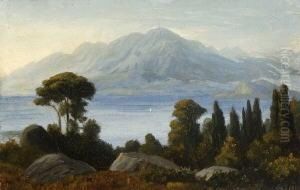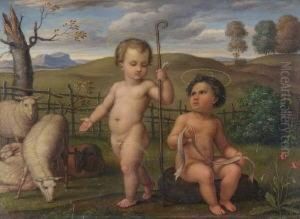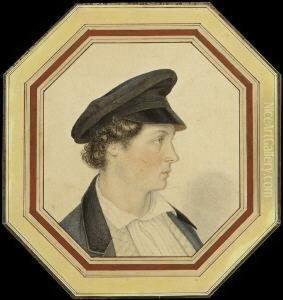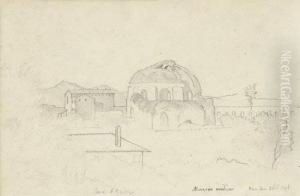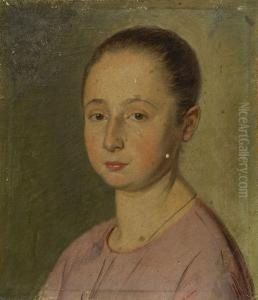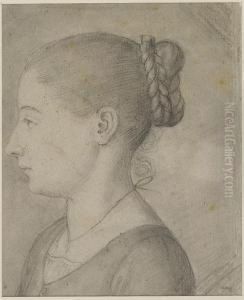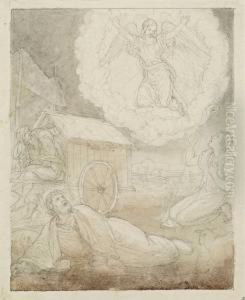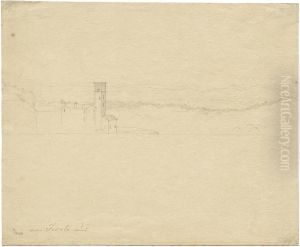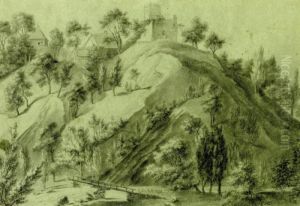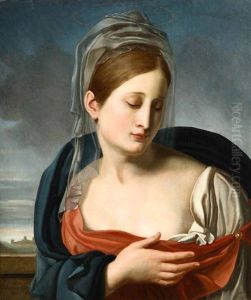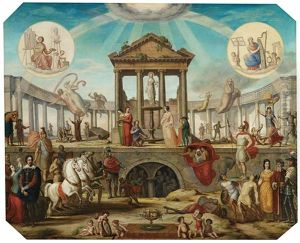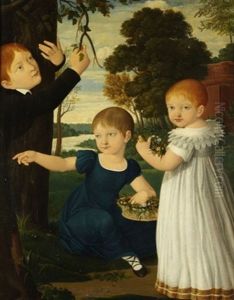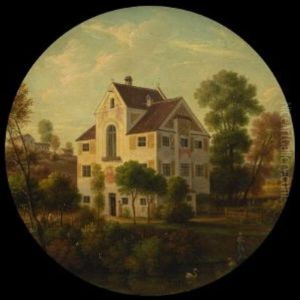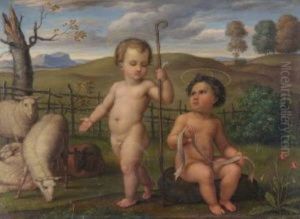Friedrich Olivier Paintings
Friedrich Johann Heinrich Olivier, commonly known as Friedrich Olivier, was a German painter associated with the Nazarene movement, a group of early 19th-century Romantic painters who sought to revive honesty and spirituality in Christian art. Born on April 1, 1791, in Dessau, Germany, into a family with strong artistic and architectural interests, Olivier was predisposed to an artistic career from an early age. His initial education was in architecture, but he quickly turned to painting, finding his true calling.
Olivier's early works were influenced by the ideals of the Nazarene movement, which he encountered through his association with its leading figures, such as Friedrich Overbeck and Franz Pforr, during his time in Rome. The Nazarenes were known for their devotion to the detail, composition, and spiritual depth of early Renaissance and medieval art. They lived and worked together in a monastic manner, aiming to revive the art and spirituality of these earlier periods. Olivier embraced these ideals, focusing on religious and historical subjects rendered with meticulous attention to detail and a profound sense of devotion.
During his stay in Italy from 1817 to 1824, Olivier developed a style characterized by clear outlines, luminous colors, and a serene, contemplative quality. His works from this period, including various landscapes, portraits, and religious scenes, reflect a harmonious blend of naturalism and idealism. Upon his return to Germany, he continued to produce works that echoed the sentiments of the Nazarene movement, though he also began to explore the German landscape in his art, contributing to the development of the German Romantic landscape tradition.
Olivier's influence extended beyond his own generation, affecting the course of German art and contributing to the broader Romantic movement in Europe. Despite his affiliation with the Nazarenes, his work is distinguished by a personal interpretation of their ideals, characterized by a softer approach to line and color and a more intimate exploration of spiritual themes.
Friedrich Olivier's legacy is preserved in various collections and museums, notably in Germany, where his contributions to Romantic art and the revival of spiritual values in painting are celebrated. He passed away on February 14, 1859, in Munich, Germany, leaving behind a body of work that continues to be admired for its beauty, depth, and sincerity.
